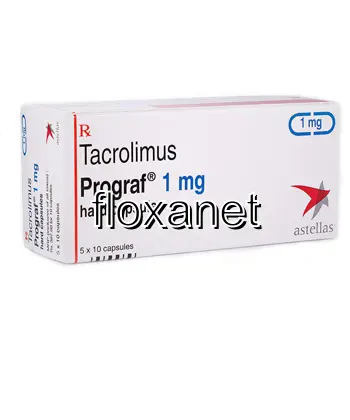| Package | Dosage | Price | Price per Dose | |
|---|---|---|---|---|
| Dosage: 0,5mg | ||||
| 90 pill | 0,5mg | £366.24 | £4.06 | |
| 60 pill | 0,5mg | £260.28 | £4.34 | |
| 30 pill | 0,5mg | £145.05 | £4.84 | |
| 20 pill | 0,5mg | £101.84 | £5.09 | |
| 10 pill | 0,5mg | £54.52 | £5.49 | |
| Dosage: 1mg | ||||
| 90 pill | 1mg | £514.39 | £5.72 | |
| 60 pill | 1mg | £368.30 | £6.14 | |
| 30 pill | 1mg | £217.07 | £7.22 | |
| 20 pill | 1mg | £161.51 | £8.07 | |
| 10 pill | 1mg | £90.52 | £9.09 | |
| Dosage: 5mg | ||||
| 20 pill | 5mg | £490.73 | £24.52 | |
| 10 pill | 5mg | £274.68 | £27.46 | |

Tacrolimus Description
Introduction to Tacrolimus
Tacrolimus is a potent immunosuppressive medication primarily used to prevent organ rejection after transplantation. It belongs to the class of calcineurin inhibitors and works by suppressing the activity of T-cells, which are part of the body’s immune response. This reduction in immune activity helps the transplanted organ to integrate with the recipient's body without being attacked. Tacrolimus is available in different forms, including capsules, ointments, and injections, making it suitable for various medical needs.
Mechanism of Action
Tacrolimus works by binding to a specific protein within T-cells called FK-binding protein (FKBP). This complex then inhibits the enzyme calcineurin, which is crucial for activating T-cells through the production of interleukin-2 (IL-2). By blocking this pathway, Tacrolimus effectively diminishes the immune response. As a result, it decreases inflammation and the risk of organ rejection. However, this suppression of the immune system also increases susceptibility to infections and certain cancers, which makes careful monitoring essential during treatment.
Uses and Applications
This medication is mainly prescribed to prevent rejection in solid organ transplant recipients, including kidney, liver, and heart transplants. It can also be used in the treatment of certain autoimmune conditions, such as severe atopic dermatitis or psoriasis, especially when other therapies have failed. The topical form of Tacrolimus is often recommended for skin conditions where inflammation and immune activity need to be suppressed locally. The choice of formulation depends on the severity and location of the condition being treated.
Effectiveness and Patient Feedback
Many patients report that Tacrolimus effectively reduces their symptoms and prevents organ rejection when used correctly. In transplant scenarios, the medication has proven to be a reliable component of immunosuppressive regimens. Patients undergoing treatment often note fewer side effects compared to older immunosuppressants like cyclosporine. However, some individuals may experience side effects such as tremors, headaches, or gastrointestinal discomfort. Skin-related reactions are common with topical formulations, but they are usually mild and tend to diminish over time.
Considerations and Safety Information
While Tacrolimus is highly effective, it requires regular blood testing to monitor drug levels and kidney function. This helps ensure the medication remains within the therapeutic range and minimizes toxicity. Patients must follow dosing schedules precisely and inform healthcare providers about any signs of adverse effects. Because of its immunosuppressive action, there is an increased risk of infections, including viral or fungal infections. Additionally, long-term use may be associated with an increased risk of certain cancers, such as lymphomas. Proper medical supervision is essential for safe and effective treatment.
Potential Side Effects
Common side effects include headache, diarrhea, nausea, and high blood pressure. Some patients may experience neurological symptoms like tremors or mood changes. Skin reactions, particularly when using topical Tacrolimus, can include redness, burning, or itching. Rare but serious adverse effects can include kidney impairment and increased susceptibility to infections. Patients are advised to report any unusual symptoms to their healthcare provider promptly.
Conclusion
Tacrolimus remains a cornerstone in transplant medicine and certain autoimmune disorders due to its strong immunosuppressive capabilities. Its effectiveness depends greatly on adherence to prescribed doses and regular monitoring. While it offers significant benefits in preventing organ rejection, careful management is required to mitigate potential risks and side effects. As with all medications, it is essential to use Tacrolimus under medical supervision to ensure safety and optimal outcomes.
